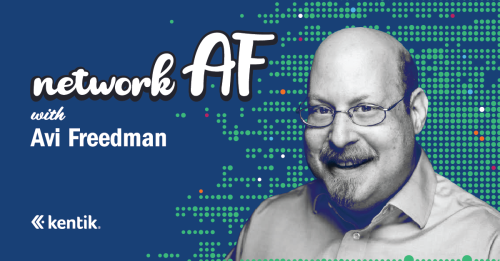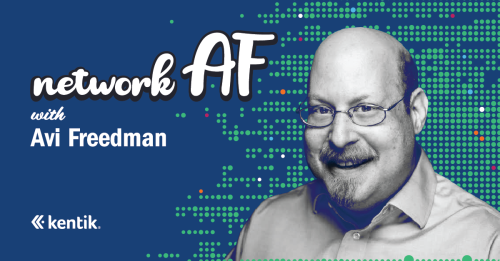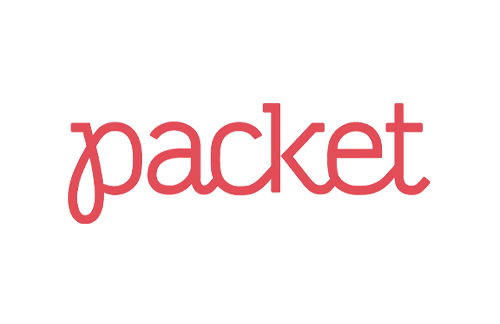Network AF, Episode 7: From Juilliard to bare metal with Zac Smith

Summary
On this episode of Network AF, Avi talks with Zac Smith, Bare Metal Managing Director at Equinix. Zac is a graduate of Juilliard, has started multiple networking companies and is an operating board member of Pursuit.
In the latest episode of Network AF, your host Avi Freedman chats with Zac Smith.
Zac is a 20-year networking veteran, the managing director of Equinix Metal, and a double bass player. Throughout Zac’s career, he’s focused on using software to build automated infrastructure platforms. That includes growing Voxel, the Linux-based hosting platform that sold to Internap in 2011, into one of the early, leading cloud-hosting companies.
In 2014, Zac co-founded Packet to empower technology-enabled enterprises with automated bare metal infrastructure. Packet was acquired by Equinix in March 2020, and Zac now leads the strategy, product and go-to-market for Equinix’s bare metal platform.
His current projects involve helping Equinix’s customers access the global reach of its 248 data centers across the world — all with less friction than traditional colocation. He is also focused on building an automated colocation product attached to Equinix’s interconnection capabilities.
Topics Avi and Zac cover include:
- Zac’s shift from Juilliard to networking
- Mentorship and “doing well by doing good”
- Widening infrastructure accessibility and education
- Zac’s goals with Packet and bare metal
The shift from Juilliard to networking
Zac tells Avi that his interest in tech grew out of a practical approach to pay for college: by doing PC repairs for wealthy people on 5th Avenue in New York. That’s where he learned he could make more money getting people connected to the internet via AOL discs than in working for minimum wage at the box office at Juilliard.
Back then, Zac says he never really thought about networking as a career because he was studying music. But with forward-thinking, he realized that starting a tech business might make more sense than trying to get hired for his music background.
Family friend John LeRoux advised Zac to avoid creating a phone company, but rather to start something with recurring revenue. LeRoux said, “If you charge people, sell to them once, and then don’t mess up. Just treat them well, and they’ll usually pay you every month. And that’s a good business model.”
So, Zac decided to start a web-hosting business that catered to musicians. He says his curiosity gave him the space to learn all about running data centers and to evolve alongside networking. And once he was in it and observing others building networks he couldn’t get out.
Zac jokes that he was the absolute worst musician at Juilliard, but it taught him that “you have to be okay being the stupidest person in the room” and be humble about it. When he first got into networks and hosting he didn’t know anything, but says as long as you’re willing to ask questions, people are really interested to share and help. He loves saying, “I don’t know yet,” and admitting when these technologies are confusing to create a safe space for people just coming into networking.
Mentorship and “doing well by doing good”
A philosophy Zac tries to live by is “doing well by doing good.” That’s, in part, because he knows how much the notion helped him when he arrived in the industry. He tells Avi that there were many people who helped him along the way.
“Raj [Dutt] would say, ‘Let me show you how to do this.’ And Adam Rothschild would always answer my questions. And then Alex would give us a colo rack and say, ‘It’s cool, let me show you.’” The help from his peers opened doors from a technical standpoint.
Zac loves not only creating products, but also creating outcomes for people. As the chair of an operating board for a nonprofit called Pursuit in Queens, New York, he helps bring underrepresented communities into the tech ecosystem, mainly focusing on full-stack developers.
He says the average person who applies for the program is earning around $18,000 per year, usually supporting two-to-three generations. After finishing a one-year program through nights and weekends (where these folks get to participate and learn about internet access with quiet places to study and computing resources), their average salary is $88,000 per year. This creates a ripple effect of possibilities for others in these communities, too.
Zac says they’ve graduated several-thousand people into tech jobs at this point.
Zac’s advice to his younger self
Thinking back, Zac says he would still tell his younger self to go to Julliard, reflecting that it was his best-ever decision. It got him to New York, allowed him to meet inspiring people, and helped him learn to be self-critical.
His advice to his younger self is to ask more questions because “it’s just always helpful.” He says we all have our own personal egos, however big or small, and asking questions helps chip this down a bit. Lastly, he says he would tell those new to their careers to take some time to enjoy while still learning and growing.




